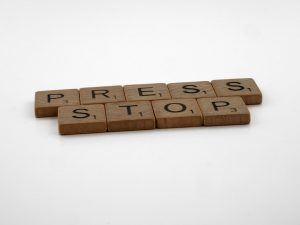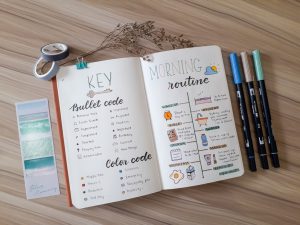Boost Your Mood with an Emotional Wellness Toolkit
Discover how to enhance your emotional well-being with a comprehensive toolkit. Start your journey to a happier, healthier you today!
Understanding Emotional Wellness
What is Emotional Wellness?
Emotional wellness refers to the ability to understand, manage, and express one’s emotions effectively. It involves being aware of your feelings, accepting them, and having strategies to cope with stress and difficult situations.
Emotional wellness is a crucial component of overall well-being, impacting mental health, relationships, and quality of life.
The Importance of Emotional Wellness
Maintaining emotional wellness is vital as it influences how we handle stress, relate to others, and make choices. Good emotional health can enhance resilience, improve communication skills, and foster a positive outlook on life.
It also contributes to physical health, as stress and emotional distress can lead to various health issues.
Components of Emotional Wellness
Several components contribute to emotional wellness, including self-awareness, emotional regulation, and empathy. Self-awareness involves recognizing and understanding your emotions, while emotional regulation refers to the ability to manage and respond to emotions in a healthy way.
Empathy, the ability to understand and share the feelings of others, is also crucial for building strong interpersonal relationships.
Strategies for Enhancing Emotional Wellness
Developing emotional wellness requires intentional effort and practice. Some effective strategies include mindfulness meditation, journaling, and engaging in activities that promote relaxation and joy.
Building a strong support network of friends and family, seeking professional help when needed, and practicing self-care are also important steps toward achieving emotional wellness.
Challenges to Emotional Wellness
Several factors can challenge emotional wellness, such as chronic stress, traumatic experiences, and mental health disorders. It’s important to recognize these challenges and seek appropriate support and resources.
Developing coping strategies and resilience can help navigate these difficulties and maintain emotional balance.
Building Resilience and Coping Strategies
Understanding Resilience
Resilience is the ability to bounce back from adversity, trauma, or significant stress. It is not an innate trait but a skill that can be developed over time.
Building resilience involves cultivating a mindset that embraces challenges and views setbacks as opportunities for growth. This skill is crucial for maintaining emotional wellness, as it empowers individuals to navigate life’s ups and downs with greater ease.
Developing a Support Network
One of the key elements of resilience is having a strong support network.
This includes family, friends, and community resources that provide emotional and practical support. Engaging with others who understand and empathize with your experiences can offer comfort and guidance during difficult times.
Building and maintaining these relationships can significantly enhance your ability to cope with stress.
Practicing Mindfulness and Self-Care
Mindfulness involves being present in the moment and acknowledging your thoughts and feelings without judgment. Regular mindfulness practice can reduce stress and increase emotional regulation, making it easier to handle adversity.
Additionally, self-care activities such as exercise, adequate sleep, and healthy eating are foundational to emotional wellness. Prioritizing self-care ensures that you have the physical and mental resources needed to face challenges effectively.
Setting Realistic Goals
Setting and achieving realistic goals can foster a sense of accomplishment and boost self-esteem.
When facing challenges, breaking down larger tasks into smaller, manageable steps can prevent feelings of overwhelm. Achieving these smaller goals can provide motivation and reinforce your ability to overcome obstacles, thereby enhancing resilience.
Learning from Experience
Reflecting on past experiences and identifying what strategies were effective in overcoming previous challenges can build resilience.
This reflection helps in recognizing patterns and developing personalized coping strategies. By learning from both successes and failures, you can better prepare for future adversities, making you more adaptable and resilient over time.
Seeking Professional Help
Sometimes, building resilience and developing coping strategies require professional guidance.
Therapists and counselors can offer valuable insights and techniques tailored to your specific needs. Seeking professional help is a proactive step in managing emotional wellness and should be considered a vital component of your emotional wellness toolkit.
Practicing Self-Care Daily
Understanding Self-Care
Self-care is a crucial aspect of maintaining emotional wellness.
It involves activities and practices that we engage in regularly to reduce stress and enhance our well-being. By prioritizing self-care, individuals can improve their emotional health, leading to a more balanced and fulfilling life.
Incorporating Mindfulness
Mindfulness is a powerful tool in self-care that involves being present in the moment and acknowledging your thoughts and feelings without judgment.
Practicing mindfulness daily can help reduce anxiety and improve emotional resilience. Simple techniques such as deep breathing, meditation, or mindful walking can be integrated into your routine to foster a sense of calm and clarity.
Establishing Healthy Boundaries
Setting boundaries is essential for emotional wellness.
It involves recognizing your limits and communicating them effectively to others. By establishing healthy boundaries, you can protect your time and energy, reducing stress and preventing burnout.
This practice allows you to focus on your needs and maintain healthy relationships.
Nurturing Physical Health
Physical health is closely linked to emotional well-being. Regular exercise, a balanced diet, and adequate sleep are fundamental components of self-care.
Engaging in physical activities you enjoy, such as yoga, dancing, or walking, can boost your mood and energy levels. Additionally, ensuring a nutritious diet and sufficient rest supports overall mental health.
Connecting with Others
Building and maintaining meaningful relationships is a vital aspect of self-care.
Social connections provide emotional support and a sense of belonging, which are crucial for emotional wellness. Make time to connect with family, friends, or support groups regularly.
Sharing experiences and feelings can foster empathy and understanding, enhancing your emotional resilience.
Engaging in Creative Activities
Creativity can be a therapeutic outlet for emotions. Engaging in activities such as painting, writing, or playing music allows you to express yourself and process feelings.
Incorporating creative pursuits into your daily routine can provide a sense of accomplishment and joy, contributing positively to your emotional health.
Seeking Support and Connection
Importance of Social Connections
Building and maintaining social connections is a fundamental aspect of emotional wellness. Humans are inherently social creatures, and having a supportive network can significantly enhance mental health.
These connections provide a sense of belonging and purpose, reducing feelings of loneliness and isolation. Engaging with others can also offer different perspectives, helping to navigate life’s challenges more effectively.
Identifying Support Systems
Identifying and nurturing existing support systems is crucial for emotional well-being.
Family, friends, colleagues, and community groups can all serve as valuable sources of support. It’s important to recognize who you can rely on during difficult times and ensure these relationships are reciprocal and healthy.
Regular communication and shared experiences can strengthen these bonds, providing a reliable safety net when needed.
Joining Support Groups
Support groups offer a unique opportunity to connect with others who are experiencing similar challenges. These groups can be found in-person or online, covering a wide range of topics from mental health conditions to life transitions.
Participating in a support group can provide validation, reduce stigma, and offer practical advice from those who have firsthand experience. It can also be a safe space to express emotions and share personal stories without judgment.
Professional Support
Sometimes, seeking professional support is necessary to address emotional wellness.
Therapists, counselors, and mental health professionals can offer guidance and coping strategies tailored to individual needs. Professional support can help individuals understand and manage their emotions, develop healthier relationships, and set achievable goals for personal growth.
Regular sessions with a professional can also provide a structured environment for self-reflection and accountability.
Building New Connections
For those looking to expand their social network, building new connections can be an enriching experience. Engaging in community activities, volunteering, or joining clubs and interest groups are excellent ways to meet new people.
These activities not only foster new friendships but also contribute to a sense of community involvement and personal fulfillment. Being open to new experiences and stepping out of comfort zones can lead to meaningful and lasting relationships.
FAQ
Q1: What is an Emotional Wellness Toolkit, and how can it benefit my daily life?
A1: An Emotional Wellness Toolkit is a collection of strategies, resources, and practices designed to help individuals manage their emotions, cope with stress, and improve their overall mental health. By incorporating tools such as mindfulness exercises, journaling, and positive affirmations into your daily routine, you can enhance your emotional resilience, improve your mood, and foster a greater sense of well-being. These tools can be tailored to fit your personal needs and lifestyle, making it easier to navigate life’s challenges with a balanced and positive mindset.
Q2: How long does it typically take to see results from using an Emotional Wellness Toolkit?
A2: The time it takes to see results from using an Emotional Wellness Toolkit can vary greatly depending on the individual and the specific practices implemented. Some people may notice an improvement in their emotional well-being within a few days or weeks, especially if they consistently practice techniques like mindfulness or gratitude journaling. For others, it may take a few months of regular use to experience significant changes. The key is to be patient and persistent, as emotional wellness is an ongoing journey rather than a quick fix.
Q3: What are some common challenges people face when implementing an Emotional Wellness Toolkit, and how can they overcome them?
A3: One common challenge is finding the time to incorporate new practices into an already busy schedule. To overcome this, start by setting aside just a few minutes each day for activities like deep breathing or meditation, gradually increasing the time as it becomes a habit. Another challenge is maintaining motivation, especially when results aren’t immediately apparent. To stay motivated, set realistic goals, track your progress, and celebrate small victories along the way. Additionally, some people may struggle with self-doubt or skepticism about the effectiveness of these tools. In such cases, it can be helpful to seek support from a therapist or join a community of like-minded individuals who can offer encouragement and share their experiences.
Takeaway
“Ready to boost your well-being with a simple change? Start by incorporating a daily 10-minute walk into your routine. Share this article with friends who could benefit too, and dive deeper into evidence-based health tips from WHO or other trusted resources. Your health journey begins with small steps – let’s take them together!”











Comments